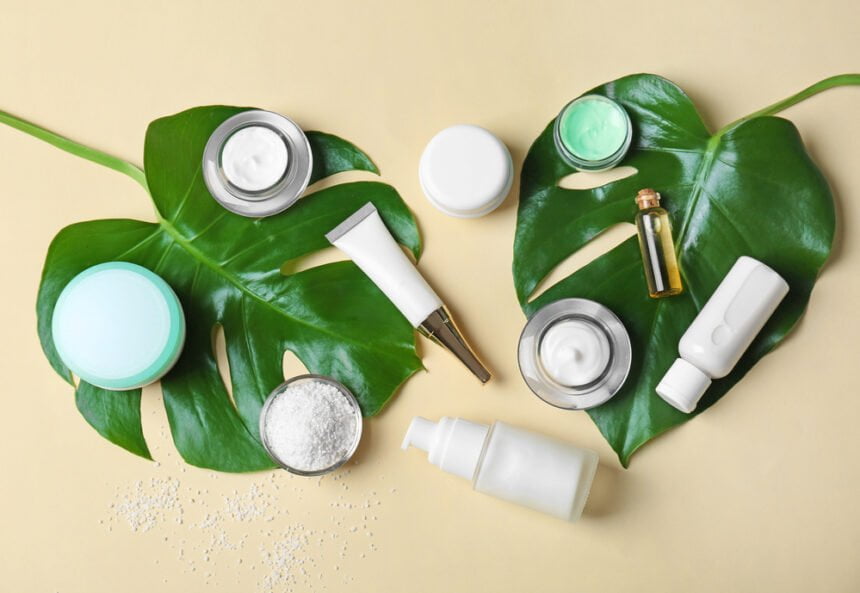Does it feel like your skin keeps changing? It’s oily on some days, tight and dry on others, and sometimes it manages to be both at the same time. In that case, you might have combination skin.
People may believe that having dry or oily skin is hard to manage, but that’s only because they don’t know what it’s like to have combination skin. Finding the right skincare products is a pain. The ones that work well for part of your face don’t work well for the rest. Sounds annoying, doesn’t it?
Plus, you have to always carry blotting paper and a light moisturizer with you wherever you go. You never know which one you’ll need. You might need both of them at the same time.
People with combination skin usually have an oily T-zone – forehead, nose, and chin – and dry cheeks. This means that when they use a product that softens up the dry areas, it can make the skin on their T-zone extra shiny and clog their pores. On the other hand, if they use products to reduce sebum production, the dry areas will start feeling tight and uncomfortable. Most products are designed for either dry or oily skin.
What Causes Combination Skin?
Your skin type is determined by your genes, and there’s nothing you can actively do to change it, but it can change because of hormonal fluctuations and the aging process. For example, taking contraceptives can affect your skin, and as people age, their skin tends to become drier.
Your diet and the weather will also have an impact on your skin.
As we’ve mentioned in the introduction, having combination skin means having an oily T-zone and dry cheeks. The oily T-zone is a result of a high concentration of sebaceous glands in this area. Some people experience more oiliness than dryness, while others the opposite.
The oily areas are shinier, with larger-looking pores, and are susceptible to developing blackheads and whiteheads.
The dry areas feel tight, rougher to the touch, and can be prone to redness and flaking.
Some people with this skin type can also have very sensitive skin, so they develop reactions like burning and stinging to many skincare products.
If you’ve had trouble finding the right products for your skin, you might want to try visiting Skinora for a skin assessment quiz and personalized skincare recommendations.
The DOs of Combination Skin
Divide and Conquer
There’s no rule that says you have to use one product on your entire face, and if you have combination skin, it’s not recommended. What you’ll want to do instead is categorize the different areas of your face according to whether they’re oily or dry.
For the oily areas, you’ll want to use products that absorb the oil and give them a matte finish.
These products will not work well on dry areas and can cause irritation. These areas need emollients.
Because you need to be more precise with products application, you’ll want to gently dab them into the different areas rather than massaging them into the whole face.
There are some products labeled for “combination skin,” but they don’t always work as advertised, so make sure you read the reviews. If you understand the science behind them, you can see why they work.
Using makeup when you have combination skin can be quite challenging, but you’ll get better results if you apply the same principle. For example, you can apply different types of primer to the different regions. This will keep your foundation from looking uneven.
Adapt Your Skincare Routine
While everyone needs to adapt their skincare routine to the seasons, when you have combination skin, even minor changes in the weather can make your skin act up. And this also goes for hormonal fluctuations. You can start by simply observing how these fluctuations influence your skin and write down your observation in your diary.
This way, you’ll know when and how to adapt your skincare routine. For example, if warmer temperatures make your skin shinier and prone to breakouts, you’ll know to switch to lighter products.
Use Humectants
A humectant is a substance that helps skin retain moisture – as in water, not oil. This will work for all areas of your face because it will keep the dry areas moisturized and feeling comfortable, and it won’t clog the pores in the T-zone. On the contrary, it will calm overactive sebaceous glands. Two of the most popular humectants in skincare are glycerin and hyaluronic acid.
The DON’Ts of Combination Skin
Skip Moisturizer
No matter what type of skin you have, it needs moisture. We know that you’re worried about the oily areas, but skipping on moisturizer can cause the sebaceous glands to produce even more sebum. You can use a light water-based moisturizer with a humectant on the whole face since it won’t clog the pores and then add a richer formula only to the cheeks.
Neglect Exfoliation
Every skin type can benefit from exfoliating regularly (without overdoing it, though). It removes dead skin cells and helps with the renewal process. In this case, you might be avoiding it because it irritates the dry areas, but you can use the divide and conquer strategy we described earlier in this article.
Since you have an oily T-zone, it can lead to clogged pores and blackheads. Exfoliating twice a week will cleanse the pores. Note that although physical exfoliants like scrubs tend to be more popular because they work faster and they’re often marketed as more “natural, “chemical exfoliants are the safer option, especially for combination skin.
Skip Toner
This is another product you might avoid because you don’t want to irritate the dry areas of your face. However, if you use a gentle toner without alcohol suitable for sensitive skin, this shouldn’t be an issue. A toner can help you maintain your skin’s pH balance and clear out excess oil from your pores.
Use Products with Irritants
Products with harsh ingredients and excessive fragrance can irritate both oily and dry skin. The oily regions will start to produce more sebum to protect themselves, while the dry areas won’t be able to this and will simply get dryer and irritated.









